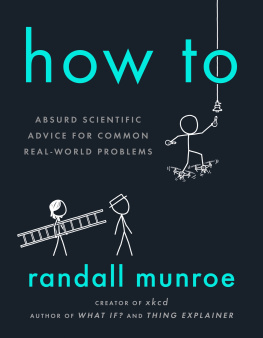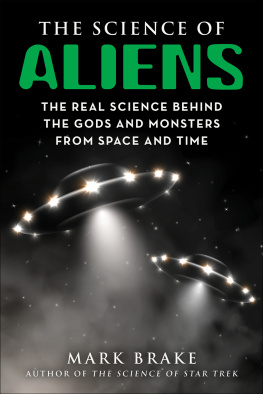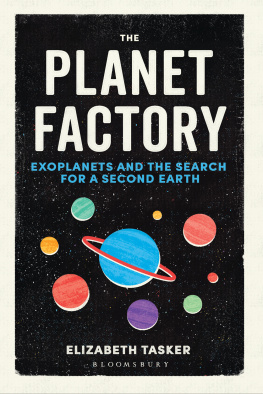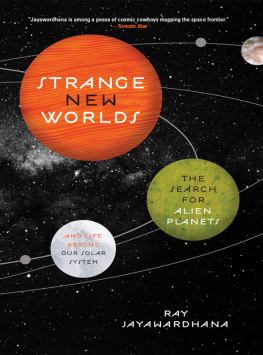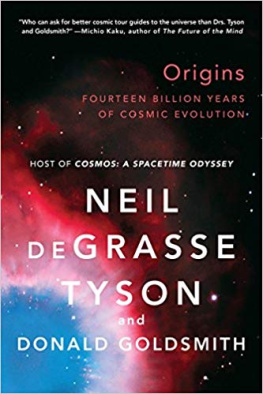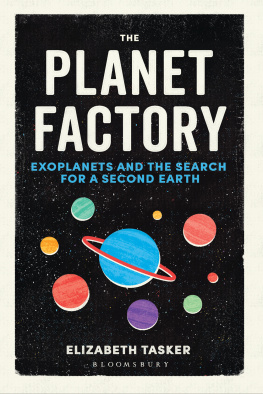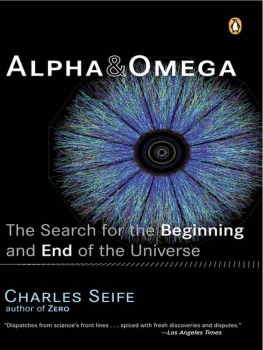THE
ALIENS
ARE COMING!
The Extraordinary Science Behind Our Search for Life in the Universe
BEN MILLER


For Sonny, Harrison, and Lana
CONTENTS
CHAPTER ONE
EXTREMOPHILES
In which the author gets his starships in a row, and discovers that the solar system is an oasis, not a desert.
WE COME IN PEACE
On August 25, 2012, the first of our ships reached interstellar space. It was unmanned. Launched three and a half decades earlier, it had skirted Jupiter and Saturn, and was now heading out of the solar system toward Camelopardalis, a little-known constellation close to the Big Dipper. Although clear of the solar wind, it was not quite out of reach of the suns gravity, nor would it be for a further thirty millennia. By then it would finally have traversed what is known as the Oort Cloud, a thick outer shell of icy rubble that encases our home star and its eight planets like the flesh around a peach stone. At that point it would be nearly a light-year out. Forget the galaxy; even the solar system is unimaginably large.
The ships name was Voyager 1, and on board was a message from the people of Earth, encoded on what became known as the Golden Record. This gold-plated phonographic disc, curated by the distinguished American cosmologist Carl Sagan, spoke on behalf of all humanity. It began with a recorded message from the Secretary-General of the United Nations, Kurt Waldheim. Reading haltingly, with a strong Austrian accent, he made the following statement:
I send greetings on behalf of the people of our planet. We step out of our solar system into the universe seeking only peace and friendship: to teach if we are called upon; to be taught if we are fortunate. We know full well that our planet and all its inhabitants are but a small part of this immense universe that surrounds us and it is with humility and hope that we take this step.
After this greeting came a choir of voices speaking in fifty-five languages: everything from Akkadian, the language of ancient Sumer, to Wu, the contemporary Chinese dialect spoken around Shanghai. Some, such as the Japanese, appeared shy: Hello, how are you? Others were more forthcoming, such as the Amoy of southeastern China, who offered: Friends of space, how are you all? Have you eaten yet? Come visit us if you have time. The speaker of Ancient Greek, on the other hand, issued a barely concealed threat: Greetings to you all, whoever you are. We come in friendship... to those who are friends.
These Greetings of Earth were accompanied by twenty-odd Sounds of Earth, among them echoing footsteps, hard rain, and a handsaw cutting fresh wood. Over one hundred Scenes of Earth showed images such as a hand being x-rayed, the chemical structure of DNA, and a man and a pregnant woman in silhouette. And, finally, there was the Music of Earth, with over twenty of humanitys finest recordings, including the first movement of Beethovens Fifth, Bachs Well-Tempered Clavier, and Johnny B. Goode performed by Chuck Berry.
EARTH LEFT YOU A MESSAGE
That might have the flavor of science fictionat least, I hope it does as I was trying my hardestbut it is all true. So far as we know, the Golden Record has not yet been intercepted by spacefaring aliens. If it is, what they are to make of it is anyones guess. For a start, we have to hope that they arent too big. An alien the size of a blue whale might have a hard time getting a needle in the groove, let alone building a hi-fi system for it to play on at the required speed of 16 revolutions per minute. Equally, too small an alienone the size of a microbe, saymight never realize the Golden Record, or Voyager 1 itself, was even there in the first place.
Next, of course, we have to hope that they share our perception of time. As we shall see in a later chapter, not all animals on Earth do, let alone all aliens. To crows, for example, whose brains have a faster clock, human communication appears slow and deliberate. If alien time passes much faster than human time, the aliens might not realize that human speech contains information; it might simply sound like long, unintelligible groans. To understand human speech, it helps to have a brain that chugs along at human speed.
And while we are on the subject of human speech, we had better hope that any aliens that find the Golden Record have ears, that the frequency range of those ears matches that of our own, and that they themselves communicate using vocalizations. On a deeper level, we had better hope that the concepts expressed in our messagesthings like peace and space and timehave equivalents within their own language, or languages. And on an even deeper level, we hope they share the concept of a message within their culture, and dont just fire it straight back again.
It doesnt end there. To be able to see the instructions on the case of the Golden Record, detailing how the information inside is to be decoded, the aliens had better be able to see, and their vision had better be attuned to the same range of the electromagnetic spectrum as our own eyes. Again, we can see from life-forms on Earth that this is not a given. A race of superintelligent bats, for example, might see the Golden Record as nothing more than a metallic Frisbee. A community of superintelligent bacteria might just see it as a snack.
And, most importantly of all, we had better hope that the aliens have a good understanding of human culture. If they dont, they are going to have a hard time figuring out what we were up to. When storage capacity must have been so precious, why include so many greetings? Why are genitals shown in some of the drawings of humans, but not in others? Whats the music for? Who are these people, and what the hell are they trying to tell us?
In short, we had better hope that the aliens are just like us.
LOVING THE ALIEN
Is there any question more fascinating than whether or not we are alone in the universe? The faint, ghostly light of the Milky Way is the glow of billions of stars. Is it really possible that Earth is the only habitable planet among them, and that we are the only intelligent species? And if there is intelligent life out there, might we be able to communicate with it?
The Ancient Greeks certainly thought we might. Epicurus, for example, one of the founding fathers of modern science, stated around 300 BC that other worlds, with plants and other living things, some of them similar and some of them different from ours, must exist. Newton was also onside, as is plain from an appendix he added to his famous treatise on mechanics and gravitation, the Principia:
This most beautiful System of the Sun, Planets, and Comets, could only proceed from the counsel and dominion of an intelligent and powerful being. And if the fixed Stars are the centers of other like systems, these, being formd by the like wise counsel, must be all subject to the dominion of One.
Aliens are everywhere. They can be angels come to warn us of the follies of nuclear war or they can be demons that abduct us to carry out bizarre sexual experiments. Their shape changes, from the angry Little Green Men of the first half of the twentieth century to the placid Greys of the present day. They visit us in flying saucers, speak to us telepathically, or appear as strange lights in the sky. Yet so far as we can determine, all this is a product of our imaginations. Much as we might wish it were otherwise, there is no compelling evidence that intelligent, technologically advanced aliens have ever visited Earth.
Next page

